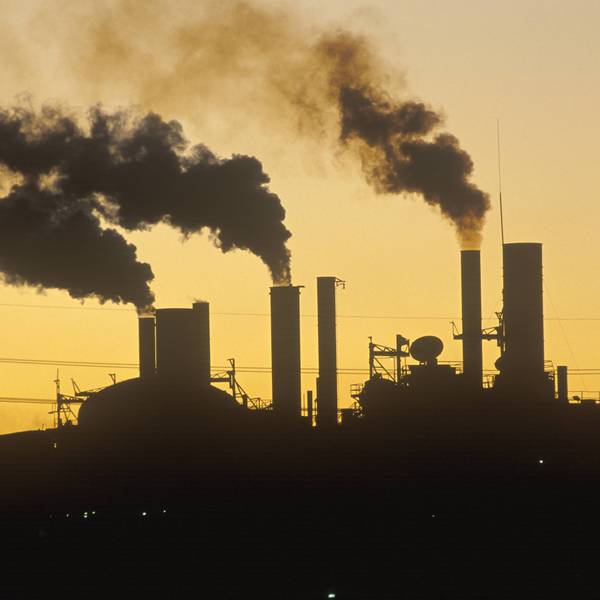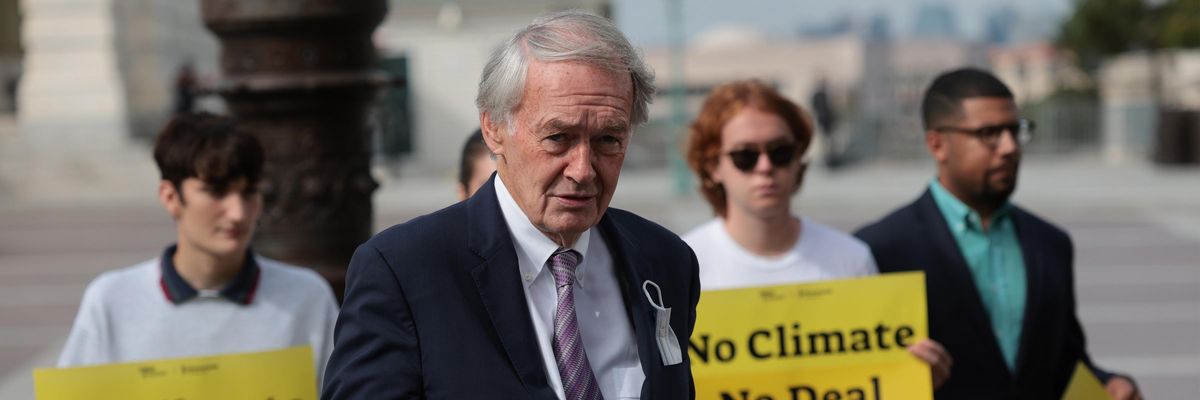The U.S. Securities and Exchange Commission released a climate disclosure rule on Wednesday that will require public companies to report their greenhouse gas emissions and climate risks, but the new rule does not include requirements for companies to report emissions related to their supply chains.
The SEC seemingly bent to big business interests after many major companies pressured the commission to omit the supply chain aspect of the rule.
"Under the original proposal, large companies would have been required to disclose not just planet-warming emissions from their own operations, but also emissions produced along what's known as a company's 'value chain'—a term that encompasses everything from the parts or services bought from other suppliers, to the way that people who use the products ultimately dispose of them. Pollution created all along this value chain could add up," The New York Times reports.
The new rule only requires that companies report their direct greenhouse gas emissions and the risks they're exposed to from climate-related natural disasters and extreme heat.
Charles Slidders, a senior attorney at the Center for International Environmental Law, criticized the weakened rule in a statement.
"The SEC's decision to bow to industry pressure against comprehensive climate disclosure requirements is a disservice to both the planet and investors," Slidders said. "In an era of urgent need for more sustainable practices, greater transparency, and reliable information on corporate climate impacts and risks, the lack of ambition reflected in this rule represents a step backward that could ultimately undermine efforts to mitigate climate change and protect investors' interests."
David Arkush, director of Public Citizen's climate program, said in a statement that the SEC had "caved to special interests and was cowed by litigation risk." Sen. Sheldon Whitehouse (D-R.I.) said it was "unfortunate" that the SEC had watered down the rule.
"Climate-related risks are financial risks, and investors have a right to know the full scope of a public company's emissions profile. This SEC decision will let big corporations off the hook in the United States, allowing them to avoid disclosure of emissions from throughout their supply chains," said Sen. Ed Markey (D-Mass.).
While the SEC may be refusing to require that companies disclose how their supply chains affect the climate, the state of California doesn't have any problem doing that. The state passed a bill in September that requires large companies to disclose this information.




